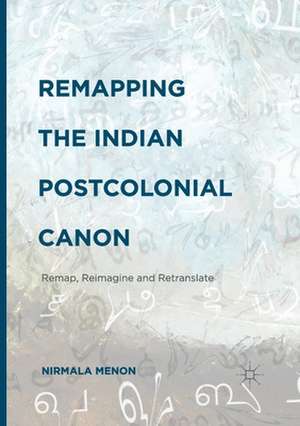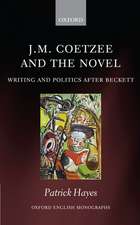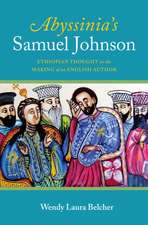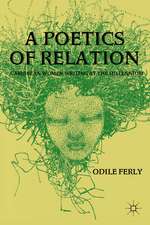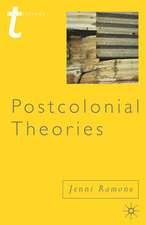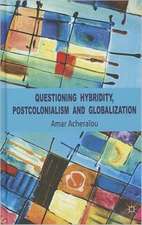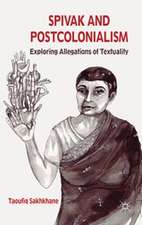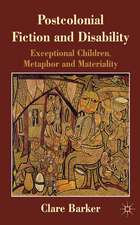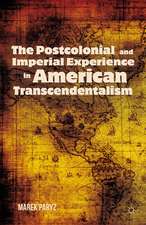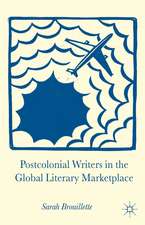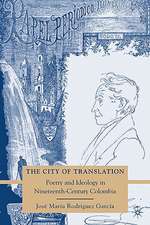Remapping the Indian Postcolonial Canon: Remap, Reimagine and Retranslate
Autor Nirmala Menonen Limba Engleză Paperback – 2 sep 2020
This book critically examines the postcolonial canon, questioning both the disproportionate attention to texts written in English and their overuse in attempts to understand the postcolonial condition. The author addresses the non-representation of Indian literature in theory, and the inadequacy of generalizing postcolonial experiences and subjectivities based on literature produced in one language (English). It argues that, while postcolonial scholarship has successfully challenged Eurocentrism, it is now time to extend the dimensions beyond Anglophone and Francophone literatures to include literatures in other languages such as Hindi, Telugu, Tamil, Tagalog, and Swahili.
| Toate formatele și edițiile | Preț | Express |
|---|---|---|
| Paperback (1) | 375.21 lei 6-8 săpt. | |
| Palgrave Macmillan UK – 2 sep 2020 | 375.21 lei 6-8 săpt. | |
| Hardback (1) | 489.27 lei 6-8 săpt. | |
| Palgrave Macmillan UK – 4 ian 2017 | 489.27 lei 6-8 săpt. |
Preț: 375.21 lei
Nou
Puncte Express: 563
Preț estimativ în valută:
71.83€ • 73.87$ • 59.59£
71.83€ • 73.87$ • 59.59£
Carte tipărită la comandă
Livrare economică 18 februarie-04 martie
Preluare comenzi: 021 569.72.76
Specificații
ISBN-13: 9781349711352
ISBN-10: 1349711357
Ilustrații: XIII, 201 p.
Dimensiuni: 148 x 210 mm
Greutate: 0.26 kg
Ediția:1st ed. 2016
Editura: Palgrave Macmillan UK
Colecția Palgrave Macmillan
Locul publicării:London, United Kingdom
ISBN-10: 1349711357
Ilustrații: XIII, 201 p.
Dimensiuni: 148 x 210 mm
Greutate: 0.26 kg
Ediția:1st ed. 2016
Editura: Palgrave Macmillan UK
Colecția Palgrave Macmillan
Locul publicării:London, United Kingdom
Cuprins
1. Introduction: The Rationale for Remapping the Postcolonial Canon: Why Remap.- 2. Representing the Postcolonial Subaltern: A Comparative Reading of Three Subaltern Narratives by O.V. Vijayan, Arundhati Roy, and Mahashweta Devi.- 3. The Hullabaloo about Hybridity: Kiran Desai’s The Inheritance of Loss, Girish Karnad’s Yayati and Heaps of Broken Images, and Lalithambika Antherjanam’s Cast Me Out If You Will.- 4. Re-Imagining Postcolonial Translation Theory.- 5. Beyond the Indian Postcolonial.- Conclusion.- Appendix 1: Wang-Chu by Bhisham Sahni, Translated by Nirmala Menon.- Appendix 2: Wang-Chu by Bhisham Sahni in Original Hindi.- Bibliography.- Index.-
Notă biografică
Nirmala Menon is Professor of Literature at the Indian Institute of Technology Indore, India. Her research spans postcolonial literature and theory, digital humanities and translation studies, and open access academic publishing in India. Her most recent publications include Migrant Identities of Creole Cosmopolitans: Transcultural Narratives of Contemporary Postcoloniality (edited with Marika Preziuso, 2014). She has published her work in international journals and presented at national and international conferences. She is on the advisory board of Open Library for the Humanities (OLH), and is an executive member of MLA’s CLCS Global South Forum and its Chairperson for 2016-17.
Textul de pe ultima copertă
This book critically examines the postcolonial canon, questioning both the disproportionate attention to texts written in English and their overuse in attempts to understand the postcolonial condition. The author addresses the non-representation of Indian literature in theory, and the inadequacy of generalizing postcolonial experiences and subjectivities based on literature produced in one language (English). It argues that, while postcolonial scholarship has successfully challenged Eurocentrism, it is now time to extend the dimensions beyond Anglophone and Francophone literatures to include literatures in other languages such as Hindi, Telugu, Tamil, Tagalog, and Swahili.
Caracteristici
Queries the linguistically Anglocentric emphasis of the current postcolonial ‘canon’ and brings attention to the importance of texts written in other languages and often overlooked Juxtaposes better-known texts from authors such as Desai and Roy with lesser-known texts, written in languages other than English Explicitly moves the argument from the local (India) to the global, with a chapter dedicated to examining the book’s relevant to broader postcolonial models and systems
